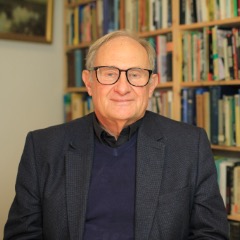You are not currently logged in. Please create an account or log in to view the full course.
How did African nationalism and anti-apartheid protest build during the 1950s?
- About
- Transcript
- Cite
South Africa – Developing High Apartheid, 1959-68
In this course, Professor William Beinart (University of Oxford) explores apartheid South Africa in the 1960s. In the first lecture, we think about the rise of African nationalism through the anti-apartheid movement prior to the 1960s. In the second lecture, we think about the political radicalisation of the anti-apartheid movement from 1959-60. In the third lecture, we think about how the apartheid regime coped during the decolonisation of Africa in the 1960s. Next, we think about the role of South Africa’s economic progress in maintaining apartheid. In the fifth and final lecture, we think about resistance to apartheid through African nationalism during the 1960s.
How did African nationalism and anti-apartheid protest build during the 1950s?
In this lecture, we think about the rise of African nationalism and anti-apartheid protest prior to the 1960s, focusing in particular on: (i) the election of the National Party in 1948, which implemented the apartheid regime until 1994; (ii) the proportion of South Africa’s population that fell into the government’s defined racial categories; (iii) the pivotal role of the African National Congress (ANC) in leading the anti-apartheid movement of the 1950s; (iv) the 19th century transition of many African people’s identity from members of a specific group to a broader identity of African; (v) the founding of the ANC in 1912 as a liberation movement against the exclusion and oppression of African people in Africa; (vi) the founding of the more radical ANC Youth League (ANCYL) in 1944; (vii) Anton Lembede’s philosophy of Africanism; (viii) the launch of the Defiance Campaign by the ANC in 1952; (ix) Albert Luthuli’s presidency of the ANC from 1952-67; (x) Alcott Gwentshe’s leadership of the anti-apartheid movement in East London, South Africa; (xi) Bloody/Black Sunday as the result of an extremely violent police response to an ANC protest, which killed around 200 ANC protesters; (xii) the ANC’s retraction of the Defiance Campaign after Bloody/Black Sunday; (xiii) the launch of the Freedom Charter in Kliptown in 1955; (xiv) the arrest of 156 anti-apartheid activists by the government in 1956 and the subsequent Treason Trial.
Cite this Lecture
APA style
Beinart, W. (2024, April 04). South Africa – Developing High Apartheid, 1959-68 - How did African nationalism and anti-apartheid protest build during the 1950s? [Video]. MASSOLIT. https://massolit.io/courses/south-africa-apartheid-in-the-1960s-1959-68
MLA style
Beinart, W. "South Africa – Developing High Apartheid, 1959-68 – How did African nationalism and anti-apartheid protest build during the 1950s?." MASSOLIT, uploaded by MASSOLIT, 04 Apr 2024, https://massolit.io/courses/south-africa-apartheid-in-the-1960s-1959-68

